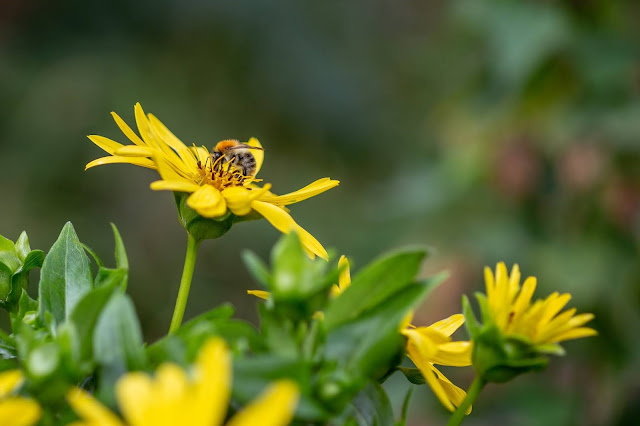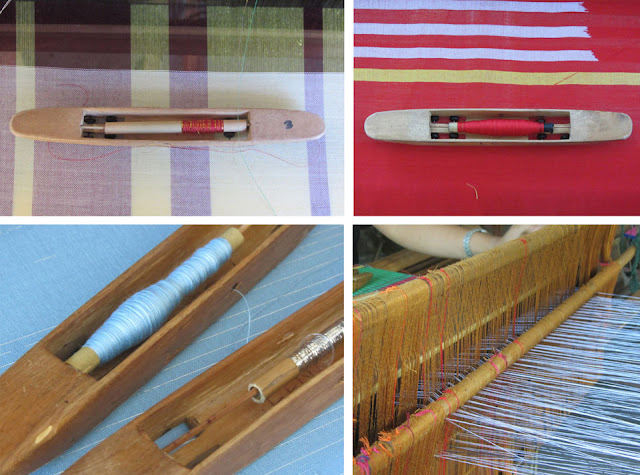More than honey, bees ensure food security
There is more to bees than honey. Bees ensure biodiversity and food security through pollination, the transfer of pollen from a stamen to a pistil. It is through this process that seeds are formed; the seeds bring about new plants.
“The current thrust of the government is on its National Greening Program, specifically on pollination,” Fajardo added.
He cited as an example, the country’s need to boost its copra oil production. “We are importing copra oil from Indonesia. So, the DA plans to incorporate beekeeping in coconut production in order for the Philippines to compete in copra oil production,” he said.
Johndom Dumagtoy, a beekeeper from Luzon, added, “Bee is an essential insect that will increase the yield of coconut. In Bicol, we are now trying to validate the results of our research that bees in coconut areas have caused a 30 to 70-percent increase in yield.”
Baconawa, in his report, encouraged coconut farmers to support beekeeping. “Coconut plant produces food for bees all year long in the Philippines. The country has at least 3 million hectares of coconut plantation. Coconut farmers belong to the poorest of the poor in the country. A hectare of coconut earns a measly P10,000 per year. The average landholding of coco-farmer is 1.5 hectares. The beekeeping project would increase the coco-farmer’s income by 10 times,” he wrote.
Thus, recently, the Department of Agriculture is beefing up its support for beekeepers.
Dumagtoy said, “We have made a beekeeping roadmap until 2016 and we hope to start the projects this year.”
Fajardo added that the DA has approved 21 related projects with P1 to P1.2 million budget each. “That’s P21 million in addition to the initial fund of P10 million that the DA through its High Value Crop Development Program, gave. The initial fund will be used to increase bee colonies in order to produce basic products like honey, pollen, propolis and beeswax.”/Photo: Mathias Nagel/Pexels
Protecting our bees
The Philippines has diverse bee species and there is a need to protect them, according to Cleofas Cervancia, professor and president of Apimondia Commission for Asia. “Even if we provide all the necessary conditions for plants to grow, these are useless without pollination,” she said.
According to beekeeper Antonio Baconawa in his report “Strategic Framework for Beekeeping Development in the Philippines”, the Philippines has European honey bees (Apis mellifera), Asian honey bees (Apis cerana), stingless bees (Trigona spp.) and indigenuous bees Apis dorsata (AD).
“That is why we can be proud to have such rich diversity. Beekeeping in other parts of the world is almost dying because of virus diseases and colony collapse disorder which is caused by many factors – genetics, pesticides and climate change because the bees’ season are shortened. Even cellphones are suspected culprits,” said Cervancia.
“What’s important is for us to protect our local species. That is why our policymakers should regulate the incoming bees from adjacent communities. Check them for pests and diseases. Require a health certificate. Bees are potential pests as they carry pathogens. For example, once a small high beetles enter the Philippines, they can infest our mangoes, strawberries, avocados, pineapples and bananas, among others,” she said.
Alejandro Fajardo, science research and extension specialist of the University of the Philippines in Los Banos, said the bee industry is valued at P2.8 million.
“For honey, we import 400 metric tons a year. We produce 80 to 100 tons a year. So, there’s a big gap that we need to fill up,” he said.
“For now, our diversification focuses on pharmaceutical and cosmetic products. Large companies like Procter and Gamble incorporate honeybee products like beeswax and pollen in their shampoos. There are also local enterprises that put honey in their cosmetic products,” he said.
However, the supply is not guaranteed because the Philippines rely on other countries, thus he stressed the need to boost the local supply.
According to beekeeper Antonio Baconawa in his report “Strategic Framework for Beekeeping Development in the Philippines”, the Philippines has European honey bees (Apis mellifera), Asian honey bees (Apis cerana), stingless bees (Trigona spp.) and indigenuous bees Apis dorsata (AD).
“That is why we can be proud to have such rich diversity. Beekeeping in other parts of the world is almost dying because of virus diseases and colony collapse disorder which is caused by many factors – genetics, pesticides and climate change because the bees’ season are shortened. Even cellphones are suspected culprits,” said Cervancia.
“What’s important is for us to protect our local species. That is why our policymakers should regulate the incoming bees from adjacent communities. Check them for pests and diseases. Require a health certificate. Bees are potential pests as they carry pathogens. For example, once a small high beetles enter the Philippines, they can infest our mangoes, strawberries, avocados, pineapples and bananas, among others,” she said.
Alejandro Fajardo, science research and extension specialist of the University of the Philippines in Los Banos, said the bee industry is valued at P2.8 million.
“For honey, we import 400 metric tons a year. We produce 80 to 100 tons a year. So, there’s a big gap that we need to fill up,” he said.
“For now, our diversification focuses on pharmaceutical and cosmetic products. Large companies like Procter and Gamble incorporate honeybee products like beeswax and pollen in their shampoos. There are also local enterprises that put honey in their cosmetic products,” he said.
However, the supply is not guaranteed because the Philippines rely on other countries, thus he stressed the need to boost the local supply.
National greening program
“The current thrust of the government is on its National Greening Program, specifically on pollination,” Fajardo added.
He cited as an example, the country’s need to boost its copra oil production. “We are importing copra oil from Indonesia. So, the DA plans to incorporate beekeeping in coconut production in order for the Philippines to compete in copra oil production,” he said.
Johndom Dumagtoy, a beekeeper from Luzon, added, “Bee is an essential insect that will increase the yield of coconut. In Bicol, we are now trying to validate the results of our research that bees in coconut areas have caused a 30 to 70-percent increase in yield.”
Baconawa, in his report, encouraged coconut farmers to support beekeeping. “Coconut plant produces food for bees all year long in the Philippines. The country has at least 3 million hectares of coconut plantation. Coconut farmers belong to the poorest of the poor in the country. A hectare of coconut earns a measly P10,000 per year. The average landholding of coco-farmer is 1.5 hectares. The beekeeping project would increase the coco-farmer’s income by 10 times,” he wrote.
Thus, recently, the Department of Agriculture is beefing up its support for beekeepers.
Dumagtoy said, “We have made a beekeeping roadmap until 2016 and we hope to start the projects this year.”
Fajardo added that the DA has approved 21 related projects with P1 to P1.2 million budget each. “That’s P21 million in addition to the initial fund of P10 million that the DA through its High Value Crop Development Program, gave. The initial fund will be used to increase bee colonies in order to produce basic products like honey, pollen, propolis and beeswax.”/Photo: Mathias Nagel/Pexels





